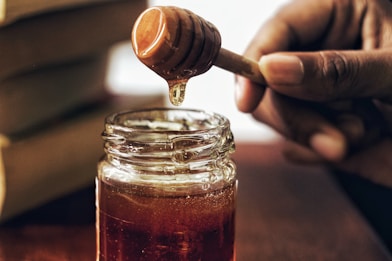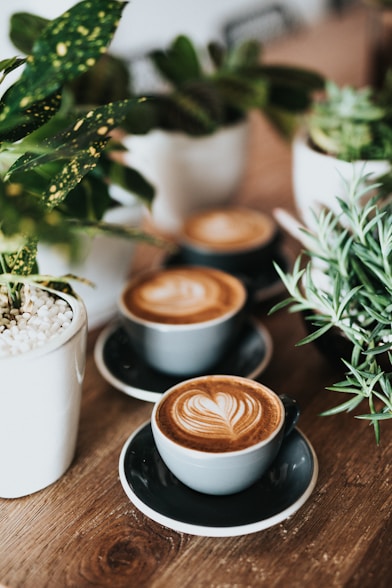Expecting a little one often means reevaluating daily routines—especially that morning cup of coffee. While moderate caffeine can be part of a balanced pregnancy diet, understanding safe limits and choosing smarter swaps is essential for maternal and fetal health. This guide breaks down evidence-based recommendations for caffeine in pregnancy, examines the risks of exceeding them, and offers tasty, low-caffeine or caffeine-free alternatives to keep you energized and worry-free.
Understanding Caffeine and Its Effects
Caffeine is a natural stimulant found in coffee, tea, chocolate, and many soft drinks. It works by blocking adenosine receptors in the brain, which reduces tiredness and increases alertness. However, pregnant bodies process caffeine more slowly—up to twice as long—so even moderate intake can lead to higher cumulative levels circulating in both mother and baby.
Studies have long explored caffeine’s impact on pregnancy outcomes. While small amounts appear safe, high doses may be linked to miscarriage, low birth weight, and preterm birth in some cases. The key lies in balancing enjoyment with caution—understanding how much caffeine is in your favorite drinks and how your body metabolizes it.
Curious where caffeine hides? Beyond your latte, it’s in black and green teas, matcha, cola, energy drinks, and chocolate. Even decaf coffee contains residual caffeine—about 2–7 mg per cup—so tracking total daily intake can quickly add up.
Before we dive into numbers, ask yourself: how many caffeinated beverages do you consume on an average day? Then calculate the approximate milligrams to see if you’re within safe bounds. Knowing your starting point will help you make informed swaps without feeling deprived.
Recommended Caffeine Limits During Pregnancy
Major health authorities agree on a threshold that balances alertness with safety. The American College of Obstetricians and Gynecologists (ACOG) recommends keeping total daily caffeine below 200 mg—equivalent to about one 12-ounce cup of coffee—while the World Health Organization suggests similar limits of 200–300 mg.
Breaking it down:
- Standard 8-oz drip coffee: ~95 mg
- Espresso shot (1 oz): ~63 mg
- Black tea (8 oz): ~47 mg
- Green tea (8 oz): ~28 mg
- Cola (12 oz): ~33 mg
- Dark chocolate (1 oz): ~12 mg
If you drink a morning latte (about 150 mg) and an afternoon tea (about 47 mg), you’re already approaching 197 mg. Factor in a small piece of dark chocolate after dinner, and you’ve hit the 200 mg mark. Tracking labels and using smartphone apps can help you stay under the threshold without much effort.
Seasoned with curiosity? Try swapping one caffeinated beverage per day for a low-caffeine or decaf option to give your metabolism—and your baby’s—a breather. Gradual reductions also help prevent withdrawal headaches and irritability.
Risks of Excessive Caffeine Intake
Exceeding recommended limits doesn’t guarantee complications, but research indicates potential associations worth considering. Here are key concerns:
Miscarriage and Preterm Birth
Some studies suggest a dose-response relationship between high caffeine intake (>300 mg/day) and miscarriage risk, although confounding factors like smoking can muddle results. While evidence isn’t conclusive, staying within the 200 mg guideline offers a prudent margin of safety.
Low Birth Weight
High caffeine consumption has been linked to slightly lower average birth weights. Since caffeine constricts blood vessels, it may reduce placental blood flow, potentially affecting fetal growth. Maintaining moderate intake helps maximize nutrient delivery to your baby.
Sleep Disruption and Maternal Stress
Beyond direct fetal effects, excess caffeine can impair maternal sleep quality and increase anxiety—both of which influence pregnancy well-being. Poor sleep has been associated with higher rates of gestational diabetes and hypertension, so limiting late-day caffeine can be doubly beneficial.
By asking, “Could I be drinking more than I realize?”, you empower yourself to make small changes that yield big returns in comfort and health.
Pregnancy-Safe Caffeine Alternatives
Craving that warm mug ritual without the jitters? These swaps deliver comforting flavor and hydration, often with added nutritional perks.
Decaf and Half-Caf Coffee
Decaf coffee still contains about 2–7 mg caffeine per cup, so a decaf latte paired with a splash of regular coffee (half-caf) can cut your intake by roughly 50%. Many roasters offer smooth, full-flavor blends so you won’t miss that signature aroma.

Herbal and Fruit Infusions
Herbal teas—like rooibos, peppermint, or ginger—are naturally caffeine-free and bring their own benefits: digestive support, nausea relief, and antioxidant properties. Cold-infusing berries and citrus peels in water can also create a refreshing, colorful beverage without any stimulant.

Chicory and Grain Coffees
Roasted chicory root, barley, and dandelion “coffees” mimic coffee’s rich, bitter flavor but contain zero caffeine. They can be brewed just like your regular coffee and topped with milk or plant-based creamer for a creamy ritual without risk.
Green Tea Decaf or Low-Caffeine Blends
For tea lovers, look for brands that offer decaffeinated green tea. Some specialty leaf blends also use varietals naturally lower in caffeine, delivering subtle antioxidants without overstimulation.
Lifestyle Tips for Caffeine Reduction
Slashing caffeine cold-turkey can trigger headaches and fatigue. Instead, try these strategies to adjust smoothly:
- Slow Taper: Replace one caffeinated drink per day with a decaf or herbal option, then gradually increase.
- Mindful Timing: Limit drinks to before midday to reduce sleep disruption.
- Hydration Boost: Aim for 8–10 glasses of water daily; sometimes dehydration triggers cravings for coffee.
- Balanced Snacks: Pair low-glycemic snacks (nuts, yogurt, whole fruit) with beverages to maintain steady energy.
As you adjust, keep a simple journal: note how you feel, your sleep quality, and any cravings. Tracking progress reinforces positive habits and highlights which swaps work best for you.
Frequently Asked Questions
1. Is chocolate off-limits during pregnancy?
Not at all. Dark chocolate contains small amounts of caffeine (around 12 mg per ounce), plus mood-boosting compounds like theobromine. Enjoy in moderation—factor it into your daily caffeine total and keep portions to 1–2 oz servings.
2. Can I drink decaf tea instead of coffee?
Absolutely. Decaffeinated black or green tea offers a similar ritual with just a few milligrams of caffeine. Look for quality decaf teas that use the CO₂ method, which preserves flavor without harmful solvents.
3. Are energy drinks safe if they’re “natural”?
Most energy drinks contain high caffeine levels—often 80–200 mg per serving—plus sugar or artificial sweeteners. Even “natural” energy drinks can push you past recommended limits. Herbal energizing teas (e.g., yerba mate) may be lower in caffeine but still warrant careful label-reading.
4. Does chocolate milk count toward caffeine limits?
Yes—chocolate milk has roughly 2–7 mg caffeine per cup, plus sugar. Treat it like a mild caffeinated beverage and adjust your total intake accordingly.
5. What about kombucha and functional sodas?
Some kombuchas and botanical sodas contain green or black tea bases. Check labels: caffeine can range from 10–20 mg per serving. Choose caffeine-free or purely fruit-based options if you want zero caffeine.
Key Takeaways & Next Steps
Managing caffeine in pregnancy comes down to awareness and balance. By tracking your intake, understanding beverage caffeine content, and embracing delicious, low-caffeine alternatives, you can preserve the joy of your morning ritual without compromising health.
Actionable Tips:
- Calculate your current daily caffeine and identify easy swaps.
- Stock up on herbal teas and chicory-based “coffee” blends.
- Keep beverages before 2 pm to protect nightly sleep quality.
- Journal your energy levels and adjust gradually.
Ready to explore more natural ways to boost energy and support a healthy pregnancy? Share your favorite caffeine-free swaps in the comments below, and let’s build a community of thriving moms-to-be!


